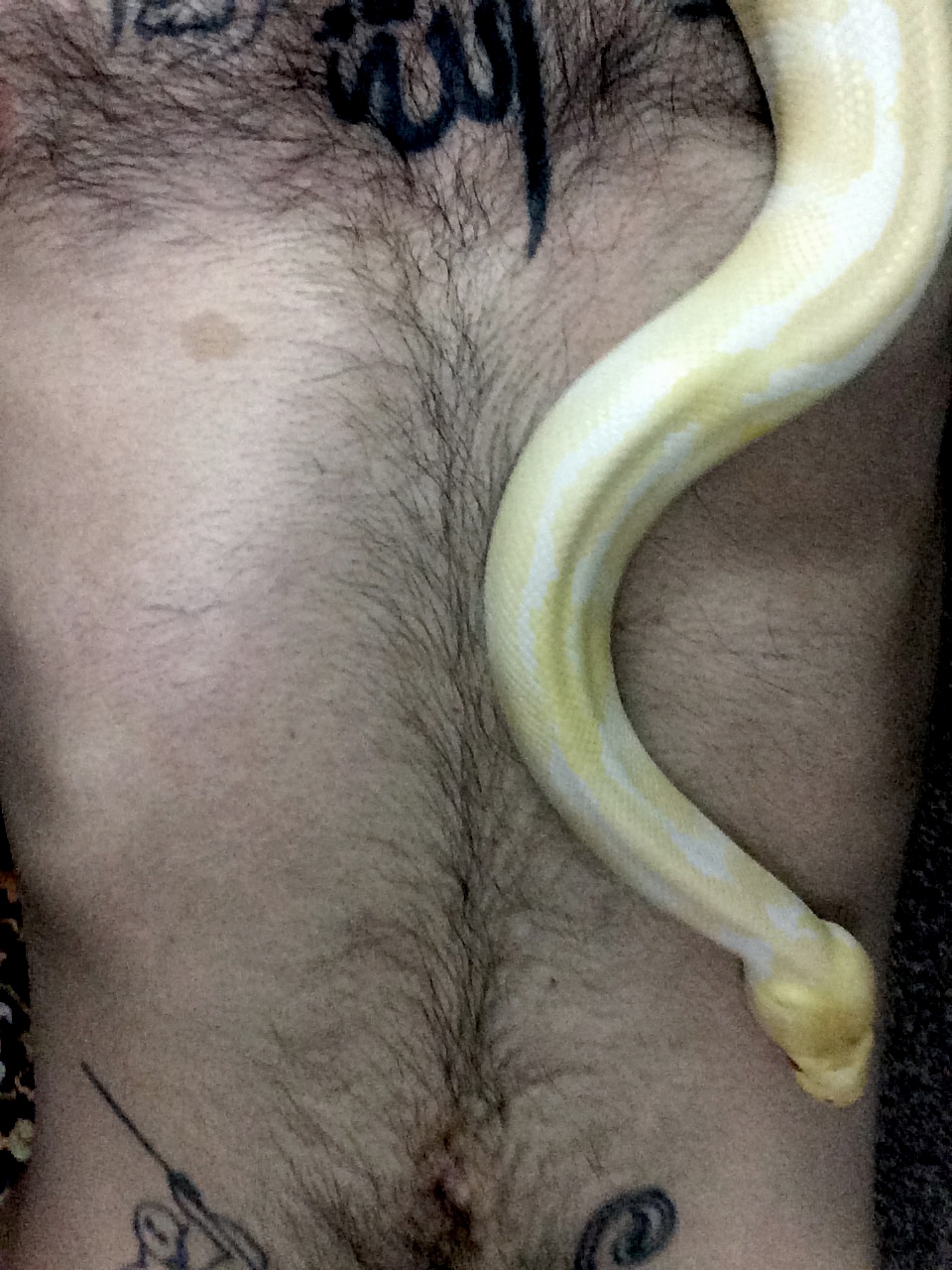
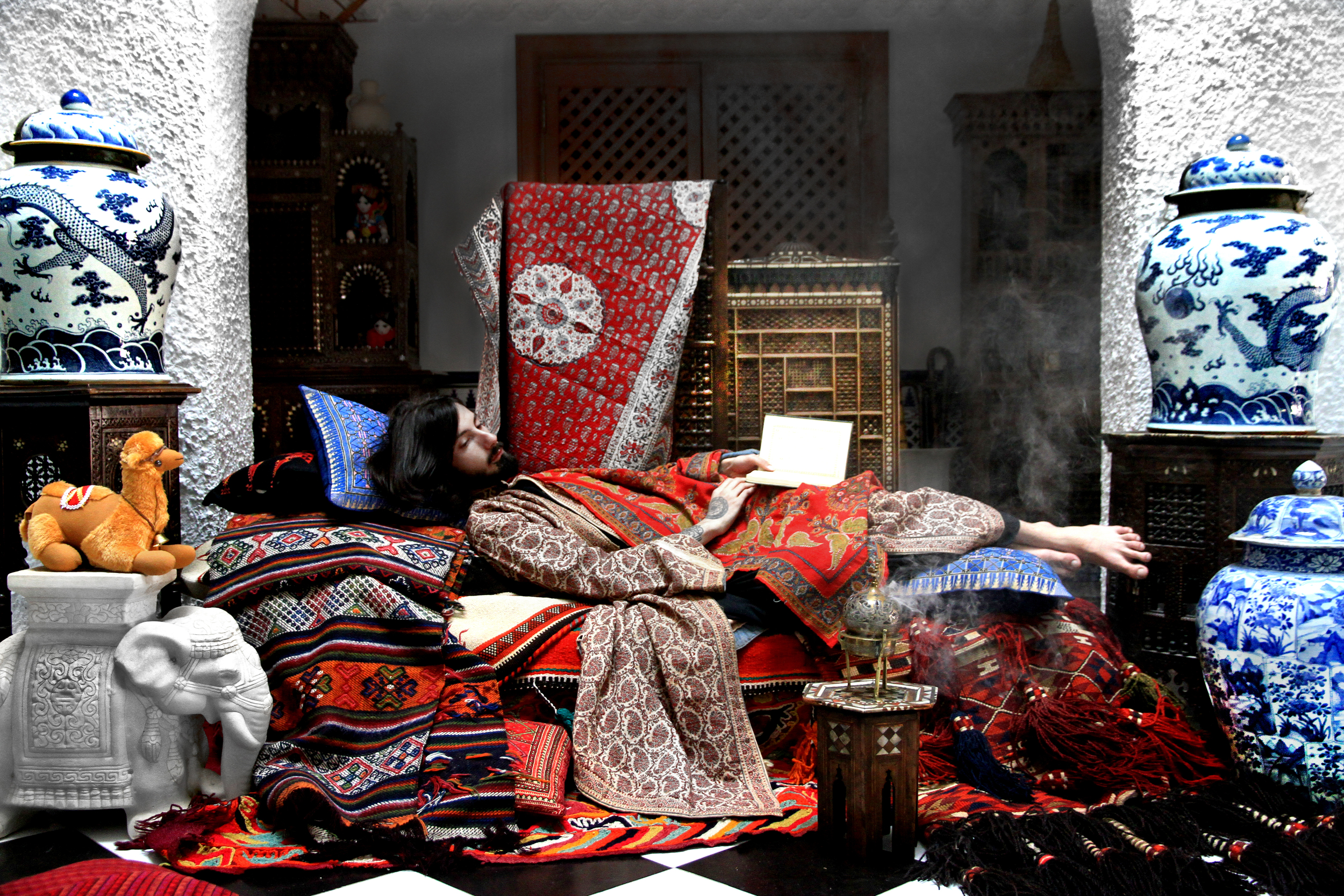
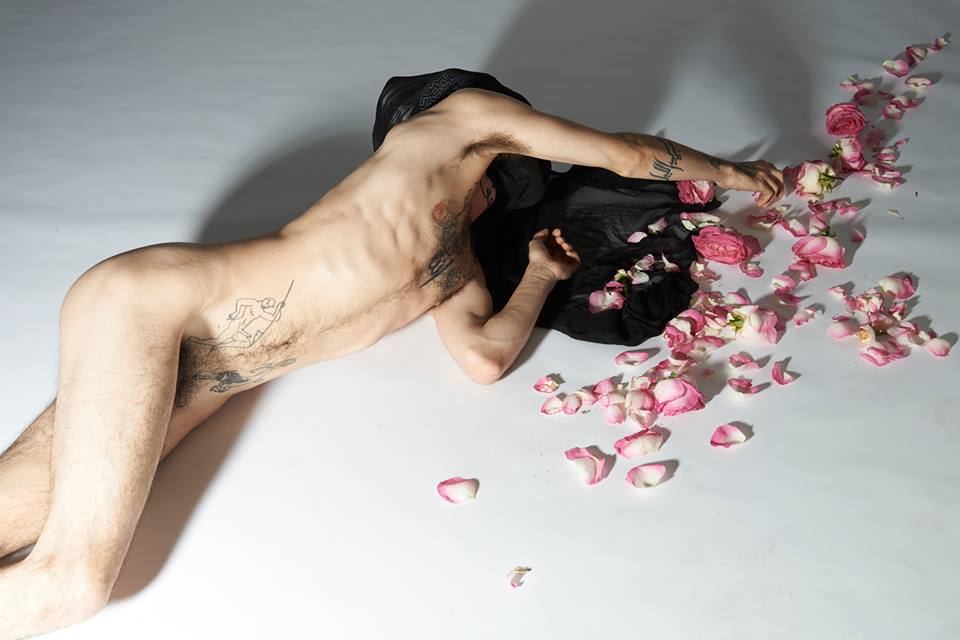
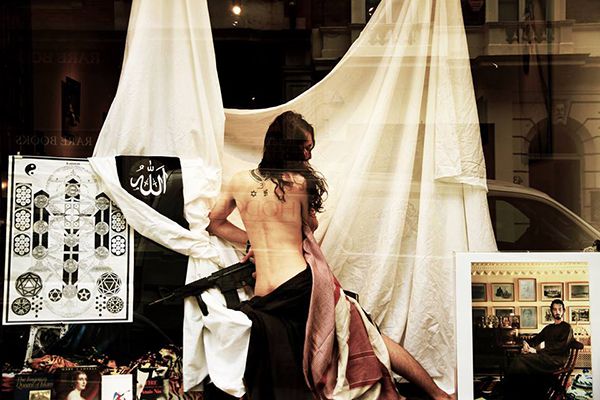
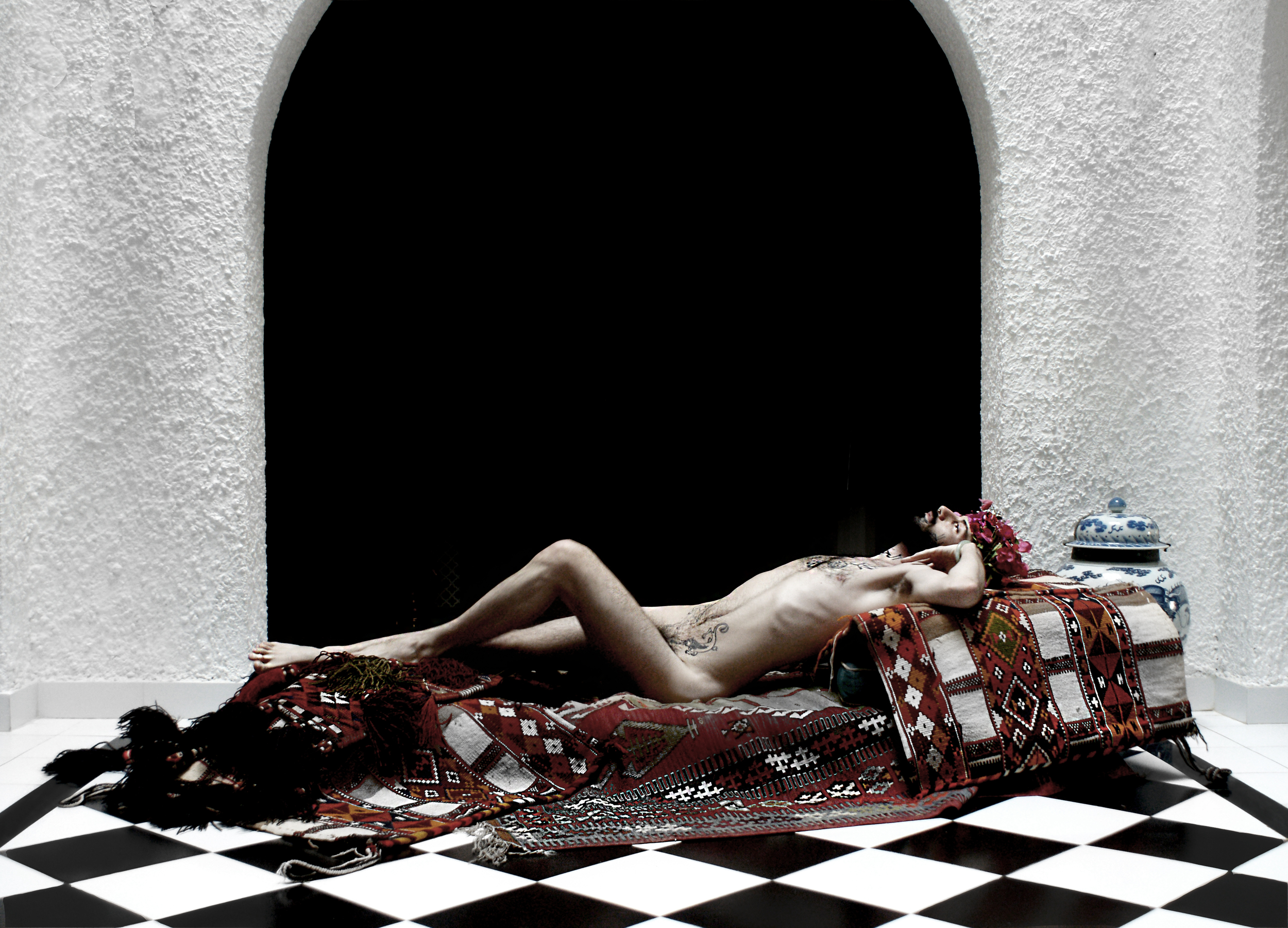
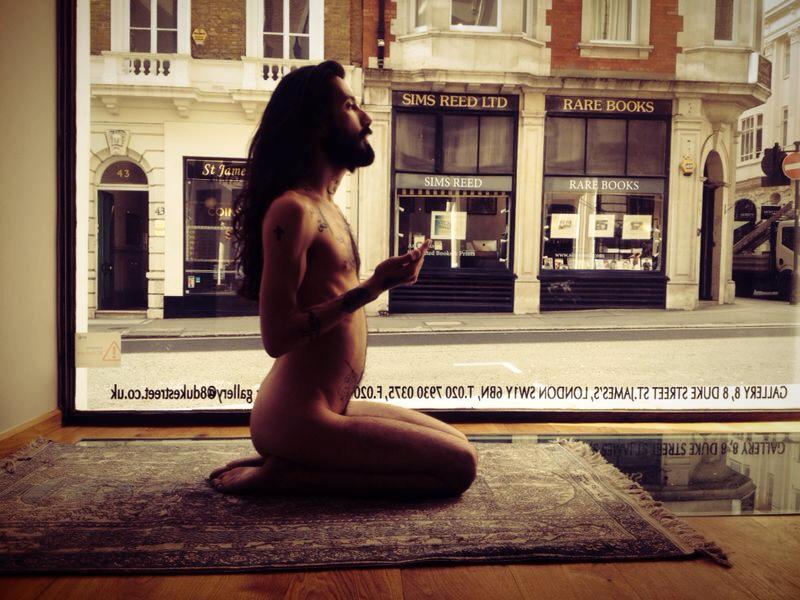
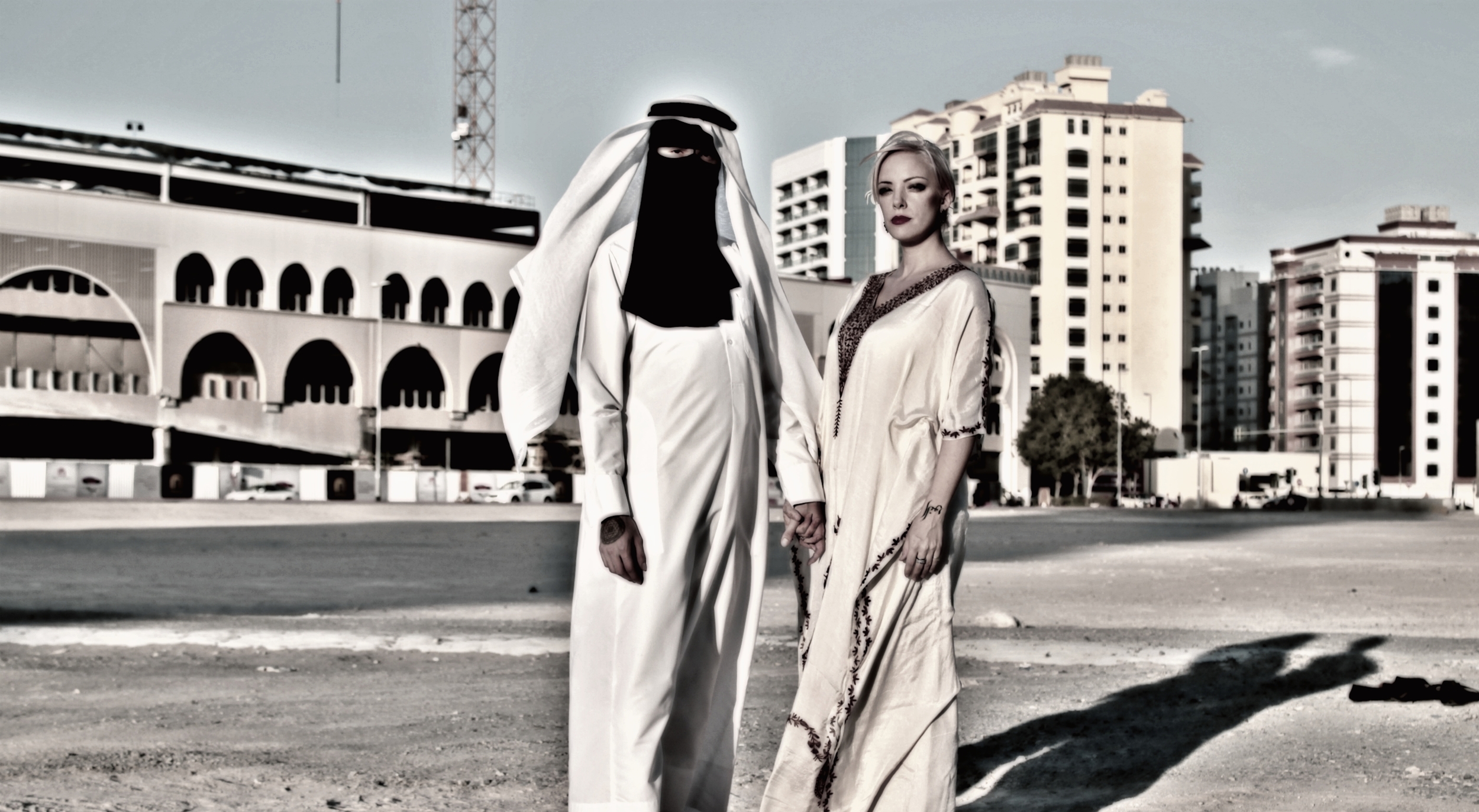
Tareq Sayed Rajab de Montfort, b. 1989, Kuwait
Born in Kuwait, with British, Iraqi and Meccan ancestry, Tareq Sayed Rajab de Montfort was educated in Islamic art and philosophy at a prominent Islamic Museum. After fleeing Kuwait at the age of 17, he came to London to study Fine Art at Central Saint Martin’s College of Art and Design.
As an artist, Tareq identifies as a Gesamtkunstwerk, an all-encompassing work of art. His oeuvre includes photography, illuminated drawings, and historical and religious research. He is known especially for using his own body as a tool of self-expression and marker of his own socioeconomic and cultural background. Inspired by his childhood surrounded by Islamic art, Tareq has begun tattooing his body with the ninety-nine names of Allah, to form a Zikr (a remembrance of divinity) and personified 'Object of Virtu'. Tareq acts as a corporal vessel of dialogue, questioning and reinterpreting Islamic and Arabic epistemology.
Tareq has had solo shows in London and Paris, where his work has been noted for its close and critical readings of sacred texts and exegesis. Drawing on classical and romantic iconographies, he creates an Islamic avant-garde. Tareq aligns himself with 19th-century 'Cults of Beauty', using self-expression, aesthetic theory and philosophy across cultures to shape his work. He refers to beauty as a healing balm manifested through art and sensuality.
As Tareq hails from a country where homosexuality is banned, the systematic repression of sexual freedom is a theme featuring prominently in his work. Bigoted ideologies are challenged by his rediscovery and re-presentation of the Arab region's history of sensual art and literature, often alongside a celebration of 'Ishq', or divine love on earth. Tareq's practice redefines perceptions of Islamic values by shedding light on lost knowledge.
In a work commissioned for The unbreakable rope, Tareq presents a series of 'vignettes' involving his own body, voice and a terrain of dialogue including objects to convey discourses of Western literature and Islamic scripture, elucidating ideas of esoteric love throughout history. Through spoken word, poetry and visual storytelling, he re-evaluates Arab-Islamic identity in a swiftly changing globalised world, where Eastern and Western cultures more than ever require rapport. 'Just like so often with the Quran, words can be deceivingly interpreted ('The devil can cite scripture for his purpose' – William Shakespeare), ambiguous sounding lines from Shakespeare even today in a certain context can sound violent or intimidate.'
LINKS
Huffington Post video
Palestine Promenade
Haaretz review
1 Granary interview
QX interview
